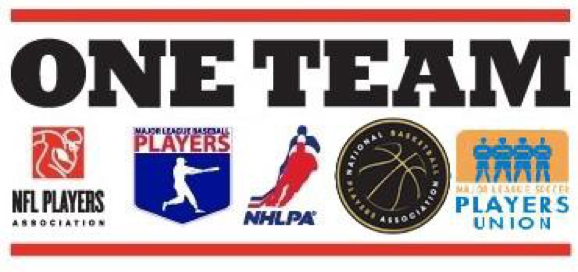The Five Players' Associations Oppose the Draft of Senator Jon Woods

May 2, 2016
The Honorable Asa Hutchinson Governor of Arkansas
500 Woodlane Street, Suite 250 Little Rock, AR 72201
Re: Senator Jon Woods’ Draft Personal Rights Protection Act Dear Governor Hutchinson:
This letter is submitted on behalf of five of the leading professional sports players’ associations in America: the Major League Baseball Players Association, the National Basketball Players Association, the National Football League Players Association, the National Hockey League Players’ Association, and the Major League Soccer Players Union. We write to you to express our deep concern over the controversial draft Personal Rights Protection Act that has been put forth by Senator Jon Woods for consideration during a potential Second Extraordinary Session. This proposed legislation has significant problems and we do not believe it appropriate for consideration during a special session.
This legislation purports to protect the property rights of an individual for the use of that individual's name, voice, signature, and likeness. However, the commercial exemptions included in the bill are so broad that these protections would be made effectively null. In fact, this legislation would weaken an individual’s rights in this area as current common law rights exceed the protections afforded under the bill. In short, the exceptions will swallow the rule.
One does not need to be a Constitutional scholar or a legal expert to understand why such an outcome is a bad result. Today, in Arkansas, if a multinational entertainment company wants to make a video game depicting a local church pastor as the head of an illegal gambling operation in the United States, it would need that pastor’s permission. If this bill passed, it would not. Today, in Arkansas, if a concert promoter would like to stage a concert using the digitized likeness of a popular artist, it would need that artist’s permission. If this bill passed, it would not. Today, in Arkansas, if a company wants to make money off the fame and celebrity of Scottie Pippen or Darren McFadden by putting their picture on a T- shirt and then selling it, the company would need their permission. If this bill passed, it would not. Ironically, in this bill, the photographer who took the picture would be granted more rights than the individuals.
This legislation would also encourage excessive litigation as it would require individuals to file a suit to prove the commercial use of their name, voice, signature, and likeness. And instead of providing protections for these rights, the broad commercial exemptions would make a significant number of these claims ill-fated. Essentially, the bill both encourages lawsuits, and also ensures these lawsuits are a lost-cause. To say the least, such a self-contradictory statutory scheme makes little sense and is highly likely to frustrate your constituents and visitors of the State of Arkansas that find themselves on the wrong side of this outcome.
A version of this legislation was vetoed by you last year. As outlined in your veto letter, the previous legislation provided for overly broad commercial exemptions and would have encouraged unnecessary litigation. As outlined above, these same concerns remain outstanding in the draft legislation before us today. Further, similar bills have been rejected in recent years by legislators in Michigan, New Hampshire, Massachusetts, and Georgia. They understood that the real consequence of such legislation was not to give individual citizens more control over how their names and identities are exploited for financial gain without their permission, but to make it easier for a variety of special interests to make money off the hard work of others.
This is a subject that deserves serious discussion, especially with constituents, the people who may find themselves without protection this bill’s title purports to add. Courts have shown that it is critical that a balancing test be used where First Amendment and personal publicity rights collide. Allowing for broad commercial exemptions, without balancing against an individual’s personal rights, would be a dramatic step in the wrong direction and would severely limit the very rights this legislation seeks to protect.
Accordingly, we do not think it appropriate for consideration during Arkansas’s potential Second Extraordinary Session, where it would not face the type of robust debate necessary to ensure areas of concern are fully deliberated.
For these reasons, we oppose this draft legislation.
Sincerely,
